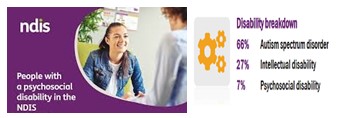
PD-CA is a provider to “Self-Managed” NDIS participants. And we deliver supports through the NDIS Code of Conduct.
Self-Management NDIS Plan:
Support Worker:
Hope For NDIS:
How to Protect your Plan:
The NDIS (National Disability Insurance Scheme) provides support to eligible people with intellectual, physical, sensory, cognitive and psychosocial disability. The NDIS gives all Australians peace of mind if they, their child or loved one is born with or acquires a permanent and significant disability, and they will get the support they need.
What is NDIS?
NDIS helps people get the support they need so their skills and independence improve over time.
PD-CA can provide direct services, providing eligibility is met, to individuals or small groups under the NDIS. We also work closely with Local Area Co-Ordinators (LAC) to align our service options based on individual care plans. If you are interested in self-managing all or part of your NDIS plan, speak with your Local Area Coordinator (LAC) or NDIA planner. You could also talk to someone you know who is self-managing about their experience or connect with a self-management peer support group. Self-management is when you manage your NDIS funding. It gives you the flexibility and choice to decide what supports you buy to meet your plan goals. It lets you think creatively about how you can use your funds to best meet your needs. NDIS developed a guide to self-management for people who are self-managing, or interested in self-managing their NDIS funding. This guide will help people understand the benefits of self-management, roles and responsibilities and how to self-manage effectively. Please click on this link to find out.
What is psychosocial disability?
Psychosocial disability is a term used to describe a disability that may arise from a mental health issue. It is an internationally recognised term under the United Nations Convention on the Rights of Persons with Disabilities, used to describe the experience of people with impairments and participation restrictions related to mental health conditions. Examples of psychosocial factors include social support, loneliness, marriage status, social disruption, bereavement, work environment, social status, and social integration. Psychosocial characteristics is commonly described as an individual’s psychological development in relation to his/her social and cultural environment. Individual psychological and social aspects are related to individual’s social conditions, mental and emotional health.
Not everyone who has a mental health condition will have a psychosocial disability, but for people who do, it can be severe, longstanding and impact on their recovery. People with a disability as a result of their mental health condition may qualify for the NDIS.
Please click on this link to find some information about psychosocial disability, or Get in Touch and we can answer your questions directly and help you in line with your individual needs.
To join the NDIS you need to meet access requirements. Please click on this link to find out more.
Let us help you directly. Knowledge is a great place to get personalised answers. Email us at Knowledge Base Center: enquiries@pd-ca.com


